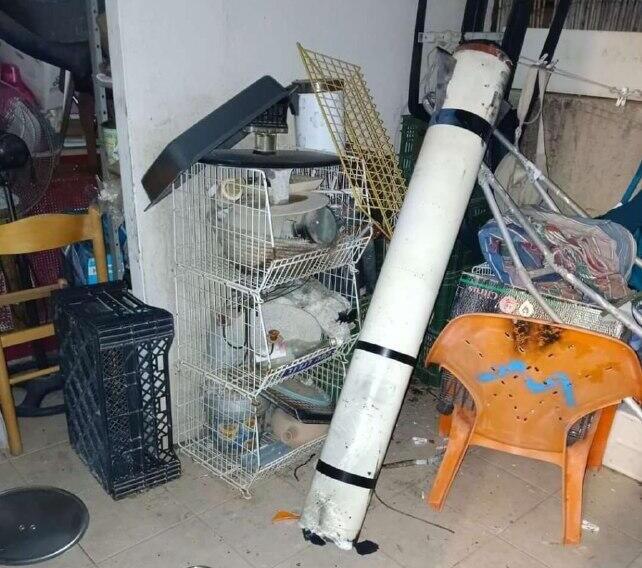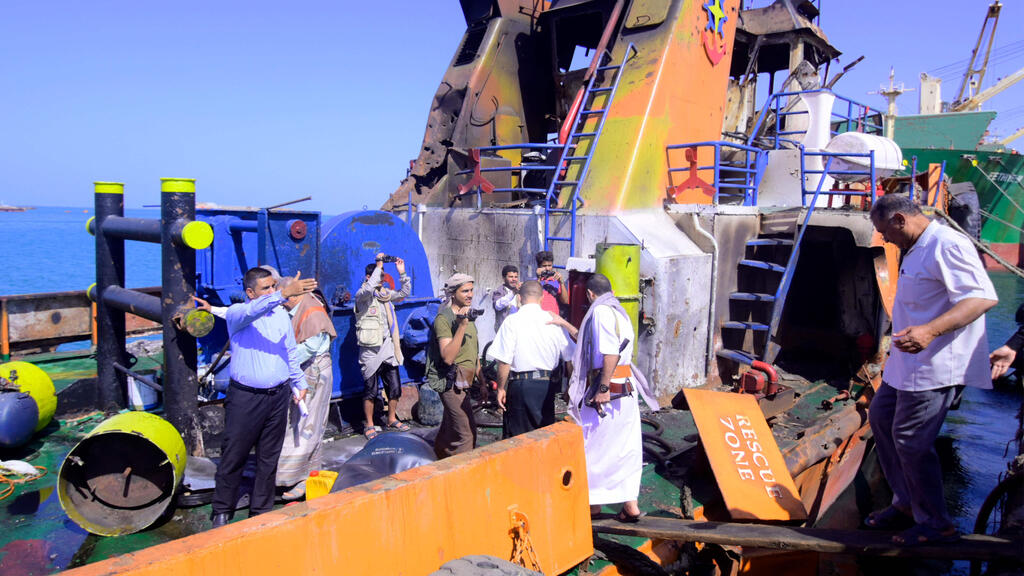The series of missile launches from Yemen toward the territory of the State of Israel may change the balance of terror: After hundreds of thousands of Israelis woke up to sirens during the previous night overnight between Tuesday and Wednesday following a ballistic missile launched by the Houthis for the fourth time in the past week, and the second night in a row, Jerusalem is considering a significant attack deep inside Yemen, including harming the leadership of the Islamist terrorist organization.
The issue of the possibility of a significant attack on Yemeni territory is being raised in talks with the Americans, and the parties are closely coordinating the continuation of the campaign. There is an understanding in Washington that the attacks must be intensified, and that the Yemenis are drunk on power and will not back down.
3 View gallery


Houthis at a demonstration in support of Gaza in Sana'a, Yemen,
(Photo: Mohammed Huwais / AFP)
Israel admits that the Houthis are a tough nut to crack, because they are clearly feeling good about themselves. Unlike the other elements of the Shiite axis, who have all suffered a morale blow, the Houthis are on a high because many in the world did not really know about their existence, and today they constitute a militant factor with great sympathy among the Arab public.
The understanding in Israel is that another attack will not solve the problem, and therefore a fundamental and profound change is needed. In Jerusalem, they estimate that this can only happen after the Trump administration takes office on January 20, in the hope that the new-old president will take a tough stance against the Houthis.
"The Houthis will pay a heavy price, there will be an escalation in Israeli attacks," according to security sources. "But that's nothing compared to what will happen to them after the Trump administration takes office. The Americans are preparing to impose an embargo and heavy sanctions on them."
At the same time, Prime Minister Benjamin Netanyahu continued to spread threatening messages toward the East. "Today we are lighting the first candle of Chanukah to mark the victory of the Maccabees then, and also the victory of 'the Maccabees of today'," Netanyahu said Wednesday night at a candle lighting event with his office employees and their children.
"Like then, we are striking at our enemies, and those who thought they could cut the thread of our lives here then, this will apply to them all. The Houthis will also learn what Hamas, Hezbollah, the Assad regime and others have learned, and this will also take time. This lesson will be learned across the Middle East, I tell you, in those days at this season," he added.
Former Defense Minister Yoav Gallant also addressed the issue. Galant, who was dismissed from his post last month, said at the lighting of the first candle of Hanukkah at the Ramat Efal school, which was severely damaged last week by a missile launched by the Houthi militias , that there is now a real opportunity to act against the terrorist organization in Yemen and to concentrate Israel's efforts there, in the shadow of the increasing launches from this arena , as well as against the leadership of the terrorist organization.
According to Gallant, joint Israeli-American action against the Houthis should be pushed for, which would constitute preparation for action against Iran "in a short time."
Gallant hinted that the Houthi leaders should be targeted: "At this time, new conditions remain. It is possible and necessary to concentrate more effort against them. It is possible to achieve different results against their leadership. We need to join the American effort, because joint action by Israel and the U.S. has a practical effect - and no less than that, it will constitute preparation for future actions that we will be forced to take against Iran in the not-too-distant future."
Get the Ynetnews app on your smartphone: Google Play: https://bit.ly/4eJ37pE | Apple App Store: https://bit.ly/3ZL7iNv
The missile, launched overnight between Tuesday and Wednesday from Yemen toward the center of the country, was intercepted by the IDF before it crossed into Israeli territory. At 4:22 a.m., alarms sounded throughout the center of the country, from the Sharon to the Lachish area. Police sapper worked at three sites where interception fragments fell, and the mayor of Be'er Ya'akov reported that a large interception fragment fell in the yard of a house. Nine people were injured on their way to the protected area.
On Wednesday evening, a drone launched from Yemen was detected in the Ashkelon area. An IDF spokesman updated that the unmanned aircraft exploded in an open area without causing any casualties.
Air Force Commander Major General Tomer Bar said Wednesday: "We operate with great force wherever we are called upon - with boldness, cunning, groundbreaking initiative, and reality-changing moves. We attacked the Houthis in Yemen three times, and we will continue to increase the pace and intensity of the attacks as necessary."





